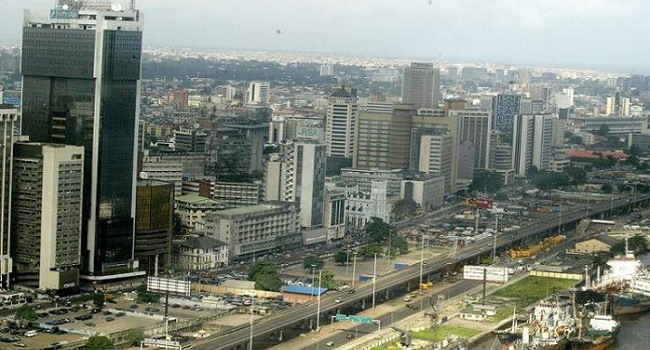Business
Nigeria retains position, scores lower in global competitiveness index

Barely a week after the World Bank Group ranked Nigeria among the seven worst nations in the world in its Human Capital Index (HCI), the country has retained its position in the 2018 Global Competitiveness Index (GCI), even as it scored lower.
The World Economic Forum (WEF) revealed this on Wednesday in its 2018 Global Competitiveness Report.
In the report, WEF defined competitiveness as the set of institutions, policies and factors that determine a country’s level of productivity.
Nigeria, which garnered a score of 47.53 out of 100, was ranked 115 out of 140 countries considered in the competitiveness survey.
Although, the nation’s latest rank is 10 places upwards from 125 out of 137 countries in the 2017/2018 GCI rankings, but the WEF said the methodology adopted for both years was not the same.
When it adopted the 2018 methodology to the 2017/2018 GCI rankings, Nigeria had scored 48.04 out of 100 to rank 112 out of 137 countries, implying Nigeria’s position did not really changed but the nation scored lower in the index.
The Global Competitiveness Report is designed to help policy-makers, business leaders and other stakeholders around the world shape their economic strategies in the era of the Fourth Industrial Revolution (4IR), according to the WEF.
Read also: Nigeria’s inflation rises for second consecutive month in September
“We hope it will also serve as a call to action to engage in the long-term, holistic, agile and far-sighted leadership required to build the competitive economies of the future, lift living standards and provide opportunities for all members of society,” the report read in part.
The survey used a total of 98 indicators derived from a combination of data from international organizations as well as from the WEF’s Executive Opinion Survey.
In the 2018 rankings, the WEF introduced the new Global Competitiveness Index 4.0 as a benchmark for understanding and assessing competitiveness, noting that a good measure of competitiveness should be strongly correlated with productivity levels.
According to WEF, it integrated the notion of 4IR into the definition of competitiveness in order to contribute to global thinking and policy-making.
“The GCI 4.0 introduces a new progress score ranging from 0 to 100. The frontier (100) corresponds to the goal post for each indicator and typically represents a policy target.
“The index integrates well-established aspects with new and emerging levers that drive productivity and growth. It emphasizes the role of human capital, innovation, resilience and agility, as not only drivers but also defining features of economic success in the 4IR.
“It calls for better use of technology for economic leapfrogging—but also cautions that this is only possible as part of a holistic approach with other factors of competitiveness. Finally, it offers objective, data-driven analysis for dispassionate, future-oriented, and rational policy-making,” it added.
RipplesNigeria… without borders, without fears
Click here to join the Ripples Nigeria WhatsApp group for latest updates.
Join the conversation
Support Ripples Nigeria, hold up solutions journalism
Balanced, fearless journalism driven by data comes at huge financial costs.
As a media platform, we hold leadership accountable and will not trade the right to press freedom and free speech for a piece of cake.
If you like what we do, and are ready to uphold solutions journalism, kindly donate to the Ripples Nigeria cause.
Your support would help to ensure that citizens and institutions continue to have free access to credible and reliable information for societal development.
























